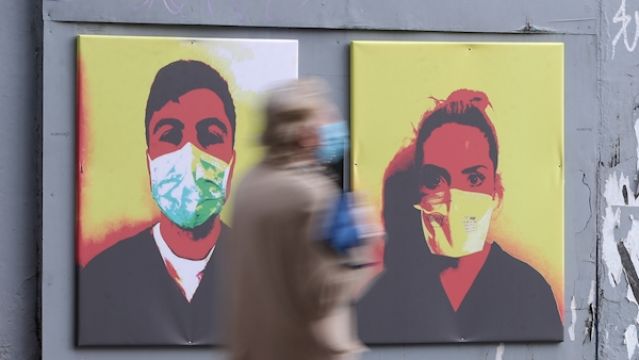Travel and transport
Residents of the three counties can only travel within their respective county, other than for the following reasons:
– to travel to and from work where that work cannot be done from home
– to attend medical appointments, collect medicines and other health products
– for vital family reasons, like providing care to children, elderly or vulnerable people, but excluding social family visits
– for farming purposes, such as food production or care of animals
You should not travel into any of these counties, other than for the reasons above, and unless you need to travel through these counties to get somewhere else. You should not stop in Kildare, Laois or Offaly unless for essential purposes.
You can also undertake one initial journey either into or out of the counties specified for the purposes of returning home from vacation.
Public and private transport
You should not use public transport unless it is absolutely necessary to do so, and where possible you should not share private vehicles with others from outside your household.
Education and childcare
The following services remain open with appropriate protective measures in place:
–education and childcare
–outdoor playgrounds, play areas and parks
Economic activity and work
Anyone in these counties who can work from home should work from home.
Cafes, restaurants and hotels
All cafes and restaurants, including bars operating as restaurants, should only offer takeaway or delivery, or outdoor dining (maximum 15 people with strict physical distancing).
Hotels can remain open but they must limit occupancy to essential non-social and non-tourist reasons. Existing guests can remain for the duration of their booking. Similar arrangements apply for campsites, holiday and caravan parks.
Indoor and outdoor gatherings
All indoor gatherings should be restricted to a maximum of 6 people from no more than 3 households in total, while maintaining physical distancing.
Outdoor gatherings should be limited to a maximum of 15 people, while maintaining physical distancing.
Cultural and religious
All cinemas, theatres, casinos, betting shops, bingo halls, gyms, leisure centres, swimming pools, exercise and dance studios are required to close.
Attendance at a funeral service and burial or cremation ceremony should be limited to 25 outdoors. Indoor events connected to the funeral are limited to a maximum of 6 people.
Places of worship remain open for private prayer, while services are to be held online.
Sport
No sporting events or matches should take place, with the following exemptions:
– non-contact training outdoors in a maximum group of 15 people may continue
– professional and elite sports and horse racing may continue behind closed doors
– inter-county training (max 15 people) and fixtures may continue behind closed doors
Residential and healthcare facilities
Visiting in long-term residential care facilities, acute settings and prisons should be suspended in the first instance with the exception of the most critical and compassionate circumstances (for example, end of life).
The impact of Covid-19 on society in general and especially those living in nursing homes has been considerable. We recognise that the proposed social distancing measures and restrictions on visiting, while introduced for the overarching public health good and for the protection of people, including those most at risk, have an unprecedented impact on people’s daily lives, and recommending them is on foot of considered reflection of the potential risk at this time.
As previously planned, the serial testing programme in nursing homes will recommence next week on a fortnightly basis, with a focus on ensuring that facilities in Kildare, Laois and Offaly are tested early in the programme.
Advice for those over 70 years or medically vulnerable
The over 70s or medically vulnerable are advised to exercise individual judgement, and to stay at home as much as possible, and limit interactions to a very small network for short periods of time, while remaining physically distanced.
They are also advised the following:
– if exercising outside, keep 2 metres apart from others and wash your hands as soon as you get home
– avoid public transport
– you should shop during designated hours and wear a face covering. Family, friends and neighbours may be able to provide assistance with shopping once they adhere to physical distancing guidelines. Alternatively, online services can be used
– shops should ensure that there are designated hours for over 70s and medically vulnerable
– if these options are not available to you, you can contact your local authority who are working with local organisations to make sure that people have access to food, essential household supplies and medicines
Public health measures
You should continue do the things that will protect yourself and others. This is the best way of interrupting the transmission of the virus:
– frequent hand washing, cough and sneeze etiquette, avoid touching eyes, nose and mouth, regularly cleaning and disinfecting surfaces
– keep a safe distance of 2 metres from other people, especially those not among your close contacts
– minimise your number of close contacts as much as possible and keep a record of your daily contacts in order to facilitate rapid contact tracing if you are diagnosed with COVID-19
– wear a face covering when using public transport, in retail settings or any other indoor setting where physical distancing cannot be maintained
– know and self-monitor for the symptoms of COVID-19. If you have symptoms, you should self-isolate immediately and contact your GP without delay
– download the COVID Tracker app
– stay informed through trusted information sources and follow official public health advice







